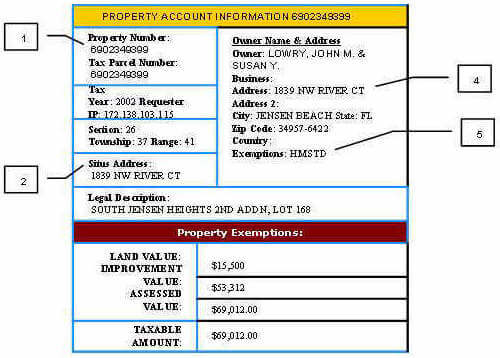All Categories
Featured
Table of Contents
If you are interested in the tax lien foreclosure process, you need to call a lawyer so you understand and evaluate the risks of this kind of financial investment. - what is tax lien certificate investing
Tax lien sales are one manner in which cities and counties try to recover some of the general public dollars they have actually invested maintaining these residential properties deserted by personal proprietors. However, as we'll describe in this write-up,. As soon as residential or commercial property taxes are thought about overdue, regional federal governments typically focus on giving notification of delinquency and trying to gather the overdue quantities from the proprietor.
This procedure typically takes years - investment lien tax. If an owner has strolled away and is resistant to pay tax obligations or keep the building, the city must spend tax dollars to maintain the home. These costsboarding up the building, cutting overgrown lawn and weeds, replying to fire and cops gets in touch with the home, and moreadd up

Owners who have dropped on hard times absolutely require every initiative to keep them out of delinquency and in their homes. Generally, if the property is uninhabited and worn-out, we have to assume the owner has actually picked to abandon their interest in the residential or commercial property and that they are "unwilling" to pay (though conditions previously in the process might have forced their hand).
Tax Lien Investing Reddit
Take, for instance, a single-family home where the owner has actually long since left. For several years the city government has needed to action in and get rid of waste discarded in the lawn, board up the doors and home windows, and react to phone calls about immoral activity on the residential property. All these solutions set you back the city government taxpayer bucks.
In several states, those prices can be gathered in the same way as the overdue tax obligations, yet not in all. In a tax obligation lien sale (or tax certification sale) the local federal government generally holds a public auction where the winning bidder concurs to pay the most money for the right to enforce the tax obligation lien, beginning with a minimum quote of at least the taxes had, plus appropriate passion, costs, and costs.

When a government offers the tax obligation lien they are typically offering to a private customer the city government's authority to gather the debt for upfront settlement of the taxes owed. The customer's acquisition typically includes the capacity to make future passion, in addition to recoup relevant charges and costs incurred by the buyer, if the residential or commercial property proprietor pays the tax obligation debt.
This is, basically, privatization of a core government function: tax collection. Tax lien sales are especially negative when it concerns vacant, deserted, and deteriorated residential or commercial properties due to the fact that they prolong the duration prior to a home can be relocated into the hands of a brand-new, more liable owner. Private tax lien buyers hold the financial debt, yet they do not possess the titlethe lawful right to ownership of the propertyand oftentimes, they have no passion in getting it.
Best Book On Tax Lien Investing
Thinking about budget cuts, neighborhood governments in lots of states have actually decreased internal home tax obligation collection and enforcement initiatives and sought to tax obligation lien sales as a quick infusion of profits - investing in tax liens and deeds (what does tax lien investing mean). Many regions select or are mandated by the state to sell tax obligation liens because it outsources collection and commonly brings in extremely needed cash earlier in the collection procedure
By transferring the city government's interest in and enforcement of the tax lien to an exclusive customer, local governments shed a lot of their versatility: versatility to acquire uninhabited residential or commercial properties that the private market doesn't want, or to aid the proprietor prevent shedding their residential property. With vacant homes, there is a much greater chance that the private purchaser isn't thinking about the building itself.
Tax lien sales can cause injury in historically disinvested locations. In a depressed housing market, less proprietors are able to retrieve the quantity of the debt marketed to a tax obligation lien buyer. These areas are ripe for a various kind of tax obligation lien investorspeculative proprietors looking for to acquire homes on the low-cost by seizing on the real estate tax lien, bleeding what little bit equity is left by leasing a second-rate residential or commercial property to susceptible tenants, and afterwards deserting the residential or commercial property when they have actually made back their financial investment.

Not all state legislations offer regional governments the power to interfere in this cycle. In either case, the residential or commercial property stays vacant and in limbo, all the while imposing significant costs on its next-door neighbors and taxpayers. It's easy to understand that several city governments transform to tax obligation lien sales due to the fact that they help fund necessary public solutions.
If the city government instead markets the property (aka the "tax obligation act"), instead of the tax financial obligation, then they are in control of what occurs to the residential property and the enforcement process if the owner continues to not pay the real estate tax owed. The federal government will supply the owner a reasonable time to repay the tax financial obligation, after which the federal government will certainly foreclose its interest in the tax obligation lien and the owner's right of redemption.
From their creation, these auctions were venues for investors to profit via exploitation. In early 20th-century cities, well-known "tax obligation sharks" like Chicago's Jacob Glos and New York's Charles Wiltsie accumulated fortunes by acquiring up ratings of tax liens on houses, billing their owners excessively high quantities to get rid of the lien, or waiting up until the deadline for negotiation passed and declaring the act.
Tax Lien Investment Funds

Phone call to eliminate tax lien sales and overhaul tax delinquency regulations have periodically erupted. Often, they have actually can be found in reaction to cases of bad, commonly senior home owners who lost their homes to unethical tax buyers over little tax obligation financial obligations. However with a couple of exemptions, state legislatures have actually stood up to structural reforms.
Those that have settled their home mortgages (mostly senior individuals or individuals who had acquired a family home) should also find the cash to pay real estate tax. This clarifies why 70 percent of the homes sold at tax obligation lien sales are owned outright. It is well hobby for states to embrace a more humaneand more effectivesystem for real estate tax enforcement.
Table of Contents
Latest Posts
Nys Tax Foreclosures
Tax Liens Foreclosures
Is Investing In Tax Liens A Good Idea
More
Latest Posts
Nys Tax Foreclosures
Tax Liens Foreclosures
Is Investing In Tax Liens A Good Idea